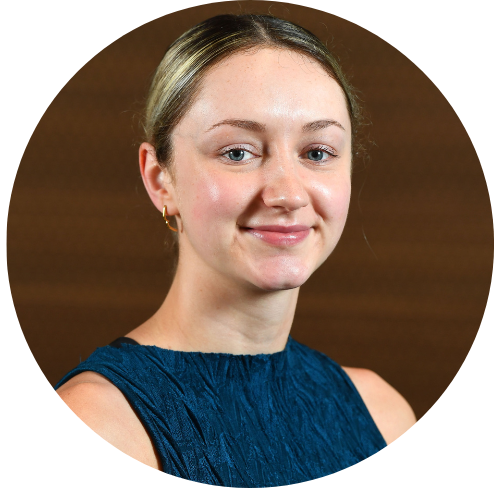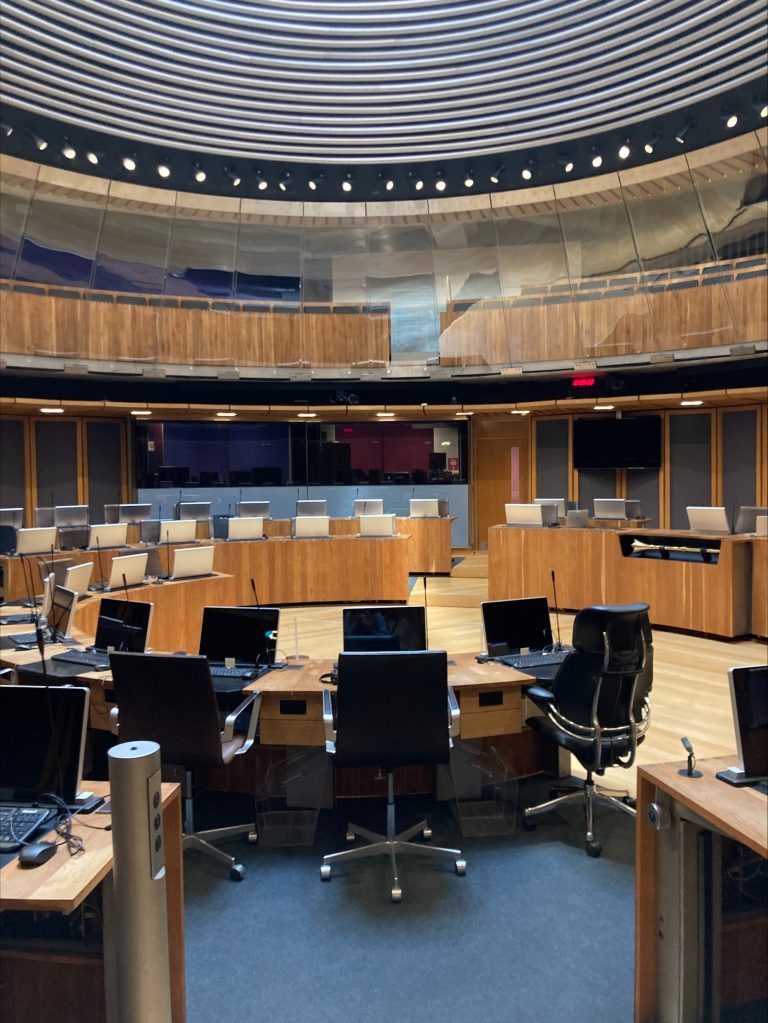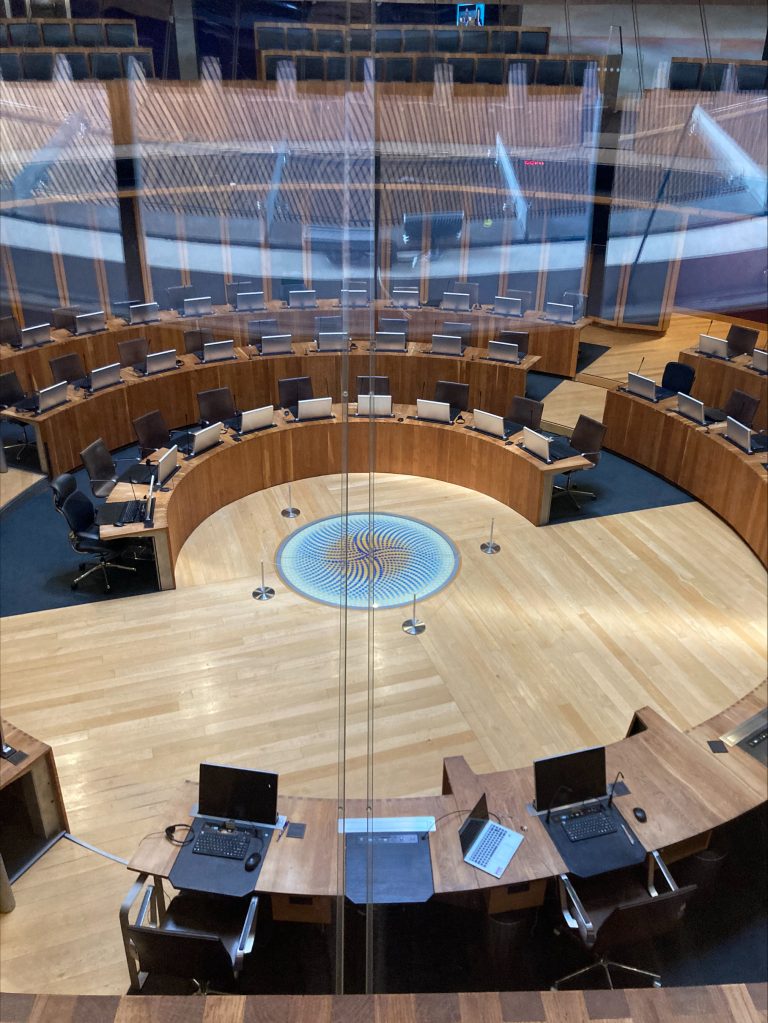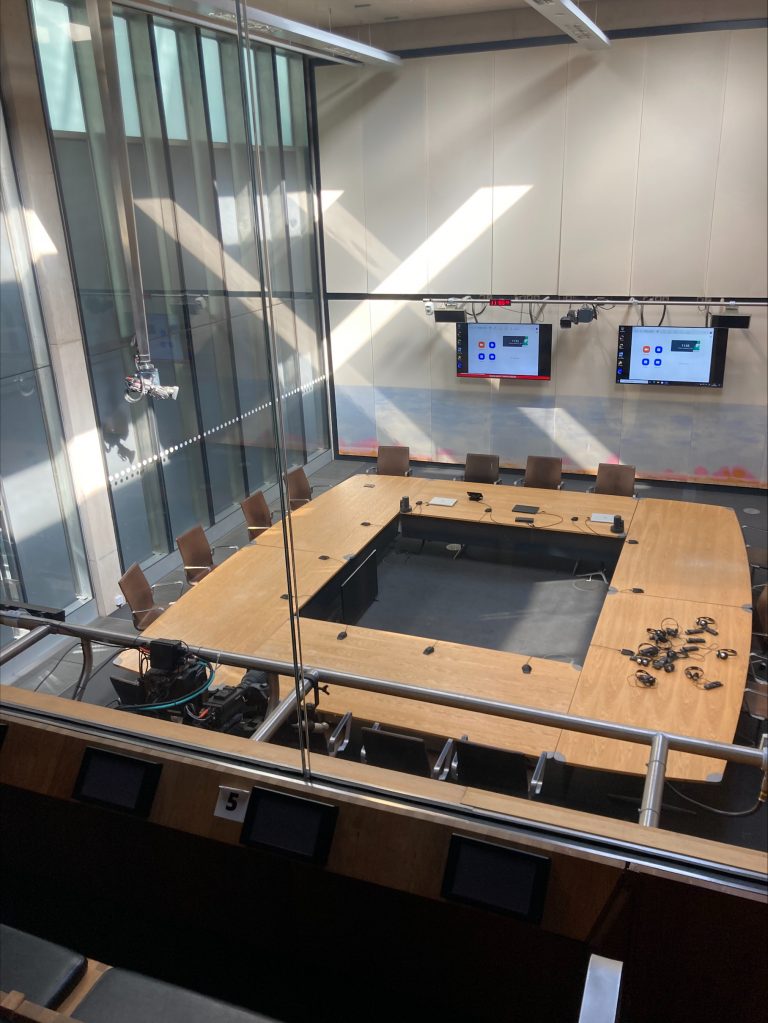
WGSSS student Isabel Lang writes about her three-month placement in the Children, Young People and Education research team within Senedd Research
I have always valued internships and their importance in offering opportunities to network, build confidence and resilience, and learn new skills
My passion for research began during my undergraduate degree in Social Science at Cardiff University, where I learned how research can be used to better understand people and to make a positive difference in society. My particular interest in social research led me to apply for a masters in Social Science Research Methods (Social Policy) at Cardiff University
After securing funding for four further years of study from the WGSSS through their 1+3 studentship, my masters was followed by a PhD, which I am now in the second year of. It explores university students’ views on student wellbeing and university culture using multi methods, and is based within the School of Social Sciences at Cardiff University and affiliated with DECIPHer.
I have always valued internships and their importance in offering opportunities to network, build confidence and resilience, and learn new skills. I am very grateful that the WGSSS studentship supports students to take time out of their PhD to undertake an internship that is relevant to their research, with their PhD funding and submission date extended for the equivalent time of their internship.
An ideal opportunity
I was excited to see the three-month UKRI policy internships advertised as they combined my interest in research and policy, which was sparked by a ‘Research Applications’ module I undertook in my master’s degree, where I learnt in more depth about how research contributes towards policy development and evaluation, and how research can have a positive impact on people’s lives.
The UKRI policy internships offered around 125 placements at 25 host partners of different influential policy organisations, which gave the opportunity to have a first-hand insight into how policies were developed across the UK, and the role of research in this process.
The internship application process included writing a short policy brief, which I chose to write on social prescribing because I am interested in the topic, it relates to my PhD research, and was often being discussed in Welsh Parliament at the time, with university researchers providing evidence on the topic in the Senedd, highlighting its relevance and importance.



Interview time…
After applying I was invited to an online panel interview to assess my appropriate skills and knowledge required to carry out a Parliamentary internship. I prepared by reading different resources about the four UK parliaments and the function of certain offices within them, looking particularly at recent work undertaken on wellbeing and education and how this related to my own experiences, knowledge, and research.
The panel included three interviewers who worked in different parliamentary settings across the UK and they were all really nice and friendly. A lot of the interview questions related to topics similar to those that I had studied in my master’s degree, such as different types of evidence and research impact.
Part of the team
When I received an offer to undertake the internship, I felt surprised and excited. I was pleased that I was chosen to undertake the internship at Senedd Research due to my interest in Welsh policy and research, with my PhD focusing on a Welsh context and also being a student in Cardiff.
In Senedd Research I was placed within the Children, Young People, and Education (CYPE) research team, which I was immediately welcomed into, and felt that everyone was really friendly and supportive. I was pleased about joining this team because the areas they cover align well with the topic of my PhD research.
Although the main area I would focus on for my internship would be on CYPE topics, there was flexibility if I wanted to get involved in other research topics and with other teams too
The CYPE research team is made up of four researchers who do a wide range of work on different topics relating to children, young people, and education, from childcare to university services. For example, the researchers write briefings on different topics, summarising evidence in an accurate and impartial way, for CYPE committee members to use in committee meetings.
The CYPE committee is made up of six members from different parties represented in the Senedd, who look at policy and legislation and hold the Welsh Government to account in areas relating to children, young people, and education, as well as health, care services, and social care relating to children and young people.
There are other Senedd committees and research teams which focus on other topics, such as transport or the economy, which often overlap with the areas that the CYPE research team and committee cover, such as education funding or transport for apprentices, and therefore researchers sometimes work across different committees. Although the main area I would focus on for my internship would be on CYPE topics, there was flexibility if I wanted to get involved in other research topics and with other teams too.
A varied workload
The internship was organised as a flexible 37.5 hour working week. There was no expectation to come into the office every day, especially as I was living in Bristol, so I decided to commute into the office every day for the first week which was filled with induction activities and meetings, and then usually one day a week for committee meetings for the remainder of the internship. I liked that the internship gave a mixture of working from home and going into the office, to experience the benefits of both.
Despite working from home most of the time my team remained very much in contact, with online meetings daily to catch up and check in. This was really helpful in learning what the other researchers were working on and meant that I always felt very supported.
Throughout the internship, my main tasks included:
- Writing responses to enquiries from Senedd members or from their research support staff, which included a range of questions relating to children, young people and education where members expected an impartial, evidence-informed response from a relevant researcher.
- Writing a briefing for the CYPE committees’ scrutiny of a private members bill on outdoor education, and also helping to write a briefing for the Economy Trade and Rural Affairs (ETRA) committees’ scrutiny of the Minister for Economy. I also wrote a briefing for the petitions committee meeting on a petition on childcare entitlement in Wales created by a member of the public which received many votes from the public to be discussed in the Senedd. This briefing was published online and provided background information on childcare entitlement and an overview of the petition.
It was interesting to see how different people gave evidence, from university professors to government officials
- Writing an article and a constituent factsheet on childcare entitlement in Wales and England.
- Sending a weekly email to the CYPE research team, including relevant recent and upcoming Senedd events, and talking through this in weekly meetings.
- Attending weekly CYPE committee meetings on ‘access to education and childcare for disabled children and young people’, which was the main enquiry topic the CYPE committee was looking into at the time of my internship. This involved different stakeholders, including members of the public (e.g. young people or parents), teachers, support staff, university researchers, professionals/experts/staff in different relevant organisations, all providing evidence and their opinion on this topic to the CYPE committee. This meant that I was able to observe various CYPE committee meetings covering different topics relating to the enquiry. It was interesting to see how different people gave evidence, from university professors to government officials.
- Attending weekly CYPE internal team meetings involving the clerk, deputy clerk, legal advisors, researchers, and citizen engagement manager, to discuss recent and upcoming work of the CYPE committee and research team, and relevant information and events.
- Attending a workshop for all the Senedd researchers where we received a talk from a BBC Wales news correspondent about their role, which was very informative and insightful on what a research career in the BBC might entail.
Overall, it was nice to have the opportunity to get involved in different things and produce different pieces of work, and I found it interesting to explore topics that I hadn’t researched in-depth before, such as childcare entitlement. I also enjoyed practising different writing styles to what I had been using in academia, as Senedd articles summarise information very concisely and are written in a style that is easy to read and accessible to a lay person.
What did I learn?
This internship has taught me about the importance of evidence being presented concisely and accessibly, and how evidence is used to shape and scrutinise policy. Also, the importance of collaboration between different groups of people (e.g. the public, researchers, and staff in third sector organisations) to develop evidence that can be used to improve policy and practice. This knowledge is invaluable for my PhD and beyond, and will influence how I collect data and present the findings of my own research.
It was really nice and reassuring to share the internship experience with others in similar positions and hear about what they had been up to working on different topics
Highlights from the internship include becoming a part of a lovely and inspiring team, getting to know Senedd researchers and what their roles were, and observing public and private committee meetings. Also, getting to know two other PhD student interns from different subject areas and universities, who were placed in different Senedd research teams. It was really nice and reassuring to share the internship experience with others in similar positions and hear about what they had been up to working on different topics.
My future plans include maintaining the networks I formed in this internship throughout my PhD research and beyond, and aiming to utilise my PhD findings in some way such as informing the public and future policy and practice. Also, to hopefully undertake another internship to gain more experience and network with other students and professionals.
I would definitely recommend other students, particularly those interested in similar topics, to apply for internships such as the UKRI policy internships scheme.

